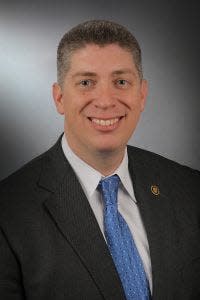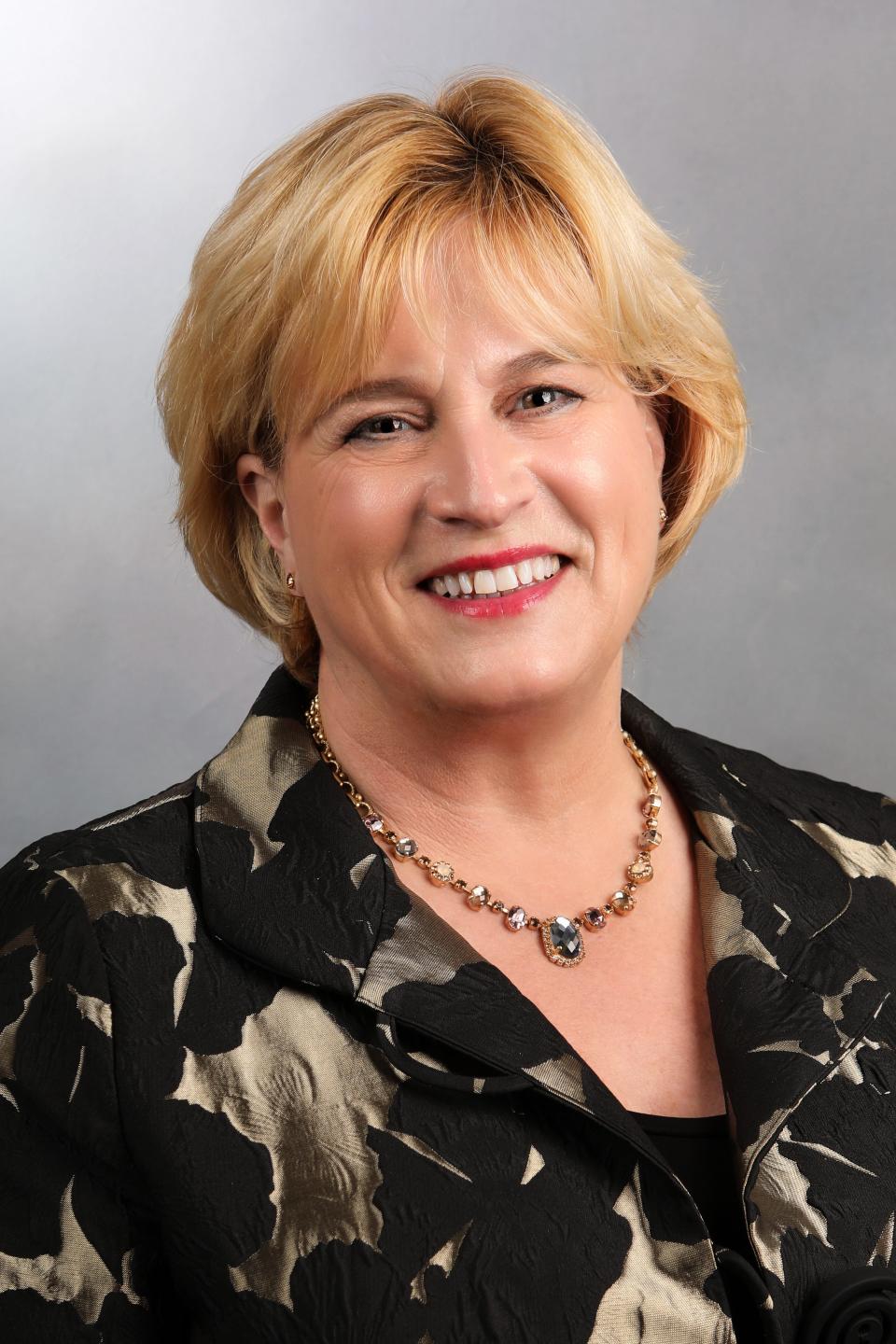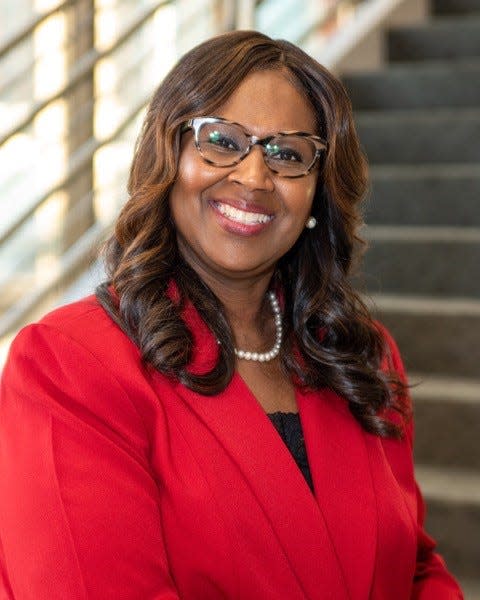Missouri lawmaker wants to abolish state's K-12 education department, transfer its powers

- Oops!Something went wrong.Please try again later.
A Missouri lawmaker wants to abolish the state Department of Elementary and Secondary Education and give the governor the authority to redistribute its powers, duties, personnel and property.
The proposed legislation was filed by state Sen. Bill Eigel, a Republican from St. Charles County who is also seeking the GOP nomination in the 2024 Missouri governor's race.
"My campaign is about busting up the bureaucracies of Jefferson City. I'm not sure there is a bigger bureaucracy in Jefferson City than the Department of Elementary and Secondary Education," Eigel said.
Eigel said the "original mission" of DESE was to transfer money from Jefferson City to local school districts. He said it now has 2,000 employees and has lost its way.
"When I talk about reform, in this case, I'm talking about defunding," he said.

He alleged the state is requiring districts to embrace diversity, equity and inclusion or DEI or teaching lessons in line with the controversial Critical Race Theory. He did not give specific examples.
"It serves as an authoritarian branch over local public school districts and really, after taking a bunch of money from the federal government, is pushing mandates down on those local school districts that I don't think that they agree with whether it's requiring them to teach DEI standards, CRT standards, whatever it is."
Should Eigel's bill be approved, DESE would likely cease to exist as a standalone entity.
The pre-filed Senate Bill 1005, which is relatively short, would give the governor the discretion to reassign many of the duties of the K-12 education department to other state agencies.
Under the proposal, the Commissioner of Education continues to serve as chief administrative officer for the state's Board of Education.
Margie Vandeven is the current commissioner but Karla Eslinger, a Republican state senator from Ozarks County, will move into the role in summer 2024.

The proposal allows the commission to "retain or employ certain staff members who are necessary to assist with the implementation of the provisions of the act," subject to the approval of the governor at the state board.
Members of the state board are appointed by the governor and approved by the Missouri Senate. They serve eight-year terms, must be from different counties or congressional districts and no more than four of the eight members can be from the same political party.
The News-Leader reached out to the K-12 education department and was told: "As a standard practice, DESE does not comment on pending legislation."
Asked for its number of employees, DESE said there were 1,799 on the payroll for the 2023 fiscal year but a majority — 1,327 or 73% — support the Missouri Schools for the Severely Disabled, the Missouri School for the Deaf, the Missouri School for the Blind, and Missouri Vocational Rehabilitation.
DESE serves nearly 900,000 students in preschool through grade 12 in more than 550 school districts and charter schools.
Springfield is the largest district in Missouri. The News-Leader asked Superintendent Grenita Lathan about Eigel's proposal.

"The Department of Elementary and Secondary Education serves an important purpose, helping to ensure that public schools are held accountable for delivering outstanding educational opportunities for every Missouri student. DESE oversees the fair and consistent application of rigorous standards for every district in our state," Lathan said, in a written statement.
"While there may be healthy disagreements over the best way to achieve certain outcomes, it is necessary that we work together to improve for the benefit of all students. By focusing on what is best for students, I am confident that we can be successful through collaboration.”
Rocky Valentine, superintendent of the Logan-Rogersville district, said DESE has area supervisors like former school superintendent Kent Medlin who help districts navigate changes in the law and expectation.
"At the local level, Kent is that liaison to help us interpret a lot of different things. DESE, at the grand scale, are the ones in charge of certification, they handle resource allocation for various funding sources," Valentine said. "The other big thing, when I think of DESE, is when legislation is passed and signed into law, someone has to interpret that and help school districts with the implementation."
For example, Logan-Rogersville and other districts have been working through the development of reading support plans, which are required by legislation passed in spring 2022.
"DESE had a very short window to put together what that was going to look like," he said. "They are the entity that helps us interpret and follow through with (changes) the state school board, the legislature, puts in place. There are a lot of pieces to that."

Valentine said the help provided by DESE does not diminish local control. He is not in favor of abolishing DESE.
"Anytime you have the removal or abolishment of that, there is a vacuum of power. Where does that go? I have read the proposed bill and, to me, it is a little unclear about what does happen with all of the different things that DESE is responsible for. I would struggle with that," he said.
"Not that I agree with DESE 100% of the time, I do acknowledge that we, as school districts, need some source of guidance on various things. Otherwise, there would be some level of chaos."
This week, the state released the Annual Performance Report showing how schools and districts measure up against academic and other benchmarks, approved by the state board, as part of the sixth iteration of the Missouri School Improvement Program.
The APR includes the results of overall state test scores, which were released in August.
Compared to the prior year, the state recorded slight increases in reading, except in grades 6 and 7, in the 2022-23 year.
The scores for math and science were flat or slightly higher in all grades and courses compared to the prior year. Scores in social studies went down.
The report showed in third grade, a pivotal benchmark, 58% of students in reading and 59% of students in math were one or more years behind where they should be at that point.
More: First look at Missouri student scores for last year 'depressing,' state board member says
Eigel said one goal of his proposed legislation is to give districts "more independence and flexibility" so they can opt out of certain requirements put in place by DESE.
However, many of the rules put in place by DESE — such as testing students in reading and math annually in grades 3-8 and at least once in high school — are steps required by federal law.
"The bureaucracy isn't doing the job. It's not getting it done," Eigel said. "And those are the things that we've got to reform and tear down."
What does DESE do?
A look at what the Missouri Department of Elementary and Secondary Education currently does and the support role it plays with school districts and charter schools:
Distributes all federal and state funds to local districts and other agencies that provide education-related services;
Assists school officials with budgeting, audits and the reporting of financial statistics, both state and federal;
Administers the federally-funded school lunch and breakfast programs;
Oversees learning services at the state level, including quality schools, college and career-readiness, special education, educator quality, early and extended learning, adult learning, and rehabilitative services;
Provides specialized services to adult citizens with disabilities to help them achieve employment and independence. This includes funding independent living centers;
Oversees efforts to expand and improve early learning opportunities for children from birth to age 5;
Provides afterschool programs for school-age children;
Develops the Missouri Assessment Program, which includes annual exams in grades 3-8 and the end-of-course exams in high school;
Conducts state inspections and investigates complaints at licensed family and group child care homes and child care centers;
Assists schools and career centers as they comply with the Carl D. Perkins Career and Technical Education Act;
Hosts adult education services and the high school equivalency testing program;
Collects data required at the state and federal level and provides data used in research and analysis that impacts policy decisions;
Evaluates educator preparation programs offered by Missouri's higher education institutions;
Issues certificates, or licenses, to professional personnel who work in the state's public school systems and helps with review of licensed personnel charged with misconduct;
Manages the Missouri School Improvement Program, the accreditation system for public school districts;
Works with local districts to develop and improve special education services for students, ages 3-21, who qualify;
Oversees operation of three school systems administered by the state Board of Education. They include the Missouri School for the Blind, the Missouri School for the Deaf, and the Missouri Schools for Severely Disabled.
Claudette Riley covers education for the News-Leader. Email tips and story ideas to criley@news-leader.com.
This article originally appeared on Springfield News-Leader: Missouri lawmaker wants to abolish state's K-12 education department

